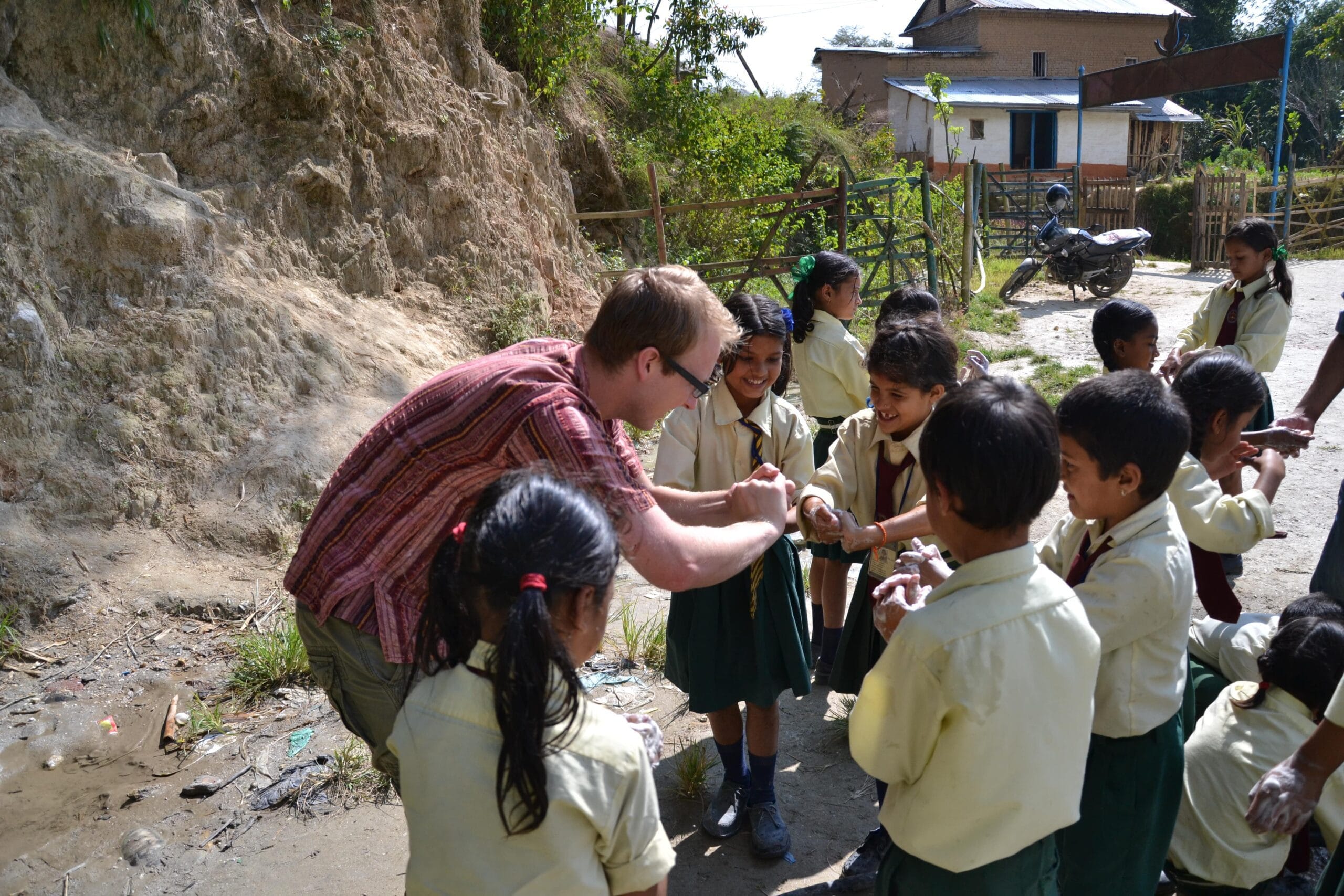
Nepal’s Total Sanitation Volunteer Project is a powerful initiative to create sustainable change in public health, environmental hygiene, and community well-being. We call WASH – Water Sanitation and Hygiene for the Total Sanitation project. The project addresses pressing sanitation challenges and contributes to global Sustainable Development Goals (SDGs), including Clean Water and Sanitation (SDG 6). This volunteer-driven movement seeks to transform lives in some of Nepal’s most marginalized regions by promoting hygiene, access to clean water, and sanitation education.
Why is Sanitation a Critical Issue?
Nepal faces significant challenges in sanitation and hygiene:
- Statistics reveal that nearly 13% of households lack access to toilets, and open defecation remains prevalent in rural areas.
- Diseases like diarrhea, typhoid, and cholera are widespread, contributing to high child mortality rates.
- Geographical constraints, poverty, and lack of infrastructure exacerbate these problems, particularly in remote regions.
Addressing these sanitation gaps involves more than providing facilities; it fosters behavioral change and ensures communities have the tools and knowledge to sustain healthy living standards.
What Does the Project Aim to Achieve?
The Total Sanitation Project has three main objectives:
- Eliminate Open Defecation: Mobilizing communities to build and use toilets.
- Promote Hygiene Practices: Educating families about handwashing, waste disposal, and clean water usage.
- Empower Local Communities: Creating a sense of ownership to maintain sanitation infrastructure long-term.
The project will improve health and foster dignity, environmental sustainability, and economic development by achieving these goals.
What Makes This Project Unique?
As a volunteer, you will play a pivotal role in driving this change. Whether you’re a student, a professional, or simply someone passionate about making a difference, the project offers a range of impactful opportunities:
- Behavioral Change Campaigns: Work with communities to raise awareness about the importance of sanitation.
- School Hygiene Programs: Teach children hygiene practices, ensuring long-lasting habits.
- Infrastructure Development: Assist in building eco-friendly toilets and clean water systems.
- Data Collection and Monitoring: Help gather insights on sanitation practices to measure project success.
- Cultural Integration: Immerse yourself in Nepali culture, learning about traditional and modern hygiene practices.
By participating, volunteers not only contribute to healthier communities but also gain invaluable skills and cross-cultural experiences.
How Does the Project Operate?
The Total Sanitation Project adopts a holistic approach, ensuring its initiatives are sustainable and community-driven:
- Community-Led Total Sanitation (CLTS): Mobilizing local groups to lead sanitation improvements.
- School-Based Hygiene Education: Equipping children with lifelong habits.
- Infrastructure Building: Constructing toilets, safe drinking water systems, and waste management facilities.
Behavioral Change Communication (BCC): Conducting workshops and public demonstrations to instill new hygiene practices.
How Does This Project Make a Difference?
For the community, the project:
- Reduces waterborne diseases and healthcare costs.
- Improves school attendance, especially for girls, by providing sanitation facilities.
- Enhances overall quality of life through better hygiene and privacy.
For volunteers, the benefits include:
- Hands-on experience in public health initiatives.
- The opportunity to make a tangible impact in underserved regions.
Personal growth through cultural immersion and skill development.
What Will You Be Doing?
As a volunteer, you’ll have diverse roles and responsibilities, including:
- Educating communities on hygiene and sanitation.
- Assisting in toilet construction projects using local, sustainable materials.
- Organizing hygiene awareness workshops in schools.
- Monitoring and evaluating the impact of sanitation initiatives.
- Supporting waste management programs, such as composting.
- Collaborating with local leaders to identify sanitation gaps.
- Promoting menstrual hygiene awareness among women and girls.
Sample Weekly Schedule
- Monday: Orientation and planning meetings.
- Tuesday: Community visits and hygiene awareness campaigns.
- Wednesday: Assisting in infrastructure development projects.
- Thursday: School hygiene workshops and monitoring activities.
- Friday: Data collection and feedback sessions.
- Saturday: Cultural exchange and local sightseeing.
Sunday: Rest or self-directed activities.
What Will You Gain from the Experience?
- Technical Skills: Hands-on experience in public health, sanitation infrastructure, and monitoring.
- Leadership Development: Opportunities to lead campaigns and workshops.
- Cultural Exposure: Learn about Nepali traditions, food, and languages.
- Networking Opportunities: Collaborate with local and international stakeholders in public health.
Who Can Apply?
- Requirements:
- Open to students, professionals, and enthusiasts interested in public health.
- Prior experience is optional; training will be provided.
How to Apply?
- Complete the online application form.
- Submit a resume and motivation statement.
- Pay a non-refundable booking fee of 150 Euros upon placement confirmation.
Receive pre-departure resources and orientation materials.
What Resources Are Available On-Site?
- Housing: Stay in homestays or dormitories with access to basic facilities.
- Meals: Three daily meals featuring traditional Nepali cuisine (e.g., daal-bhat).
Support System: 24/7 emergency assistance, regular check-ins, and local guides.
Program Costs and What’s Included
- Program Fee: Covers accommodation, meals, and in-country support.
- Additional Costs: Visa, travel, and health insurance are not included.
A Unique Opportunity to Make a Difference
- Align your efforts with global initiatives like the Sustainable Development Goals.
- Gain firsthand experience in addressing real-world public health challenges.
Enjoy the scenic beauty and cultural richness of Nepal.
Frequently Asked Questions (FAQs)
Common Concerns About the Total Sanitation Project
Training or guidance is provided for only some volunteers.
Primarily in rural areas around Kathmandu and the Everest region.
Participate in local festivals, learn Nepali customs, and enjoy traditional cuisine.
Promoting menstrual hygiene and providing sanitation facilities empowers women and girls.
Comfortable clothing, reusable water bottles, and basic hygiene supplies.
24/7 emergency support, local guides, and secure accommodations.
Yes, extensions can be arranged with prior notice.
Project Specific Skills for Public Health Research
- Educational/working background in Public Health
- Knowledge of research methodologies
- Ability to work with data and records
- Good understanding of public health trends
- Experience in statistical analysis will be an added asset
Desirable/ Common Skills
- Excellent communicator with good interpersonal skills
- A team player with good workethics
- Time management and leadership qualities
- Adaptable, flexible and able to work under pressure
- Accepting of different ideas and culture
- Problem solving: always be part of solutions than part of a problem
- Creative
- Positive attitude
Requirements
- Gender: Female / Male
- Minimum Age: 18+ years (16-17 years old person can volunteer but need to present parents’/ guardian’s consent letter)
- Language:English (Intermediate)
- Educational:High School Graduate
Your Experience/ Setting
Upon your arrival at Kathmandu Tribhuvan International Airport (TIA), you will receive a warm welcome and be transported to your hotel or hostel. If you are already in Nepal before the start of your placement, we can make alternative arrangements for you. You will undergo a comprehensive two- to three-day induction program after arrival. This induction will provide valuable information about your project and general information about the Nepalese language, culture, health, safety, and security. It is also an excellent opportunity to connect with fellow volunteers and interns who can become your companions for sightseeing and a source of support throughout your volunteer placement.
During the induction period, you will be accommodated in a budget hotel or hostel arranged by VIN. However, most of the VIN experience involves living with a Nepalese host family. While this immersion is essential for a complete experience, we understand that it can be challenging as you adapt to a new culture and adjust to facilities that may be more basic than you are accustomed to. Don’t worry; all our host families have experience accommodating volunteers, although their English-speaking abilities may vary. Also, you will have 24-hour access to our staff members for support and assistance throughout your placement.
Volunteers will be assigned to one of VIN’s working areas, which include Tarakeshor Municipality in Kathmandu, Taluwa, Thulachhap, and Bhadaure in Okhaldhunga, and Okharpouwa and Kaule in the Nuwakot district. While at the working site, volunteers are requested to bring their lunch box, water bottle, safety gear, face mask, and any other essential belongings. We advise volunteers to dress comfortably and modestly, preferably with long sleeves. Please get in touch with us for guidance and support if you want to raise project funds or collect project-specific resources. This will help the community a lot.
Schedule and Commitment
You will work five to six days a week, up to six hours per day. You may propose your preferred time and hours; however, the working time period will be dependent on the institution you have been placed. A minimum of 2 weeks’ time commitment is expected of a volunteer. The longer you commit; the better impact you can make. You should be willing to commit a certain amount of your free time and energy, show a lot of commitment and be a good listener. You are expected to work constructively and co-operatively maintaining good reputation and standards at all times. Volunteer should abide by relevant security concerns and access procedures. Moreover, you should be receptive and positive to performance appraisal, advice and feedback. Throughout your placement, you will have the full support of VIN. Your safety is our highest priority.
Your typical day might look like this:
| 07:00-08:00 | Tea/Leisure Time |
| 08:00-09:00 | Breakfast/Brunch (Nepali meal – Daal-Bhaat) |
| 09:00-10:00 | Preparation for sessions |
| 10:00-13:00 | Deliver training sessions/Workshops to students |
| 13:00-14:00 | Lunch (Packed lunch) |
| 15:00-17:00 | Deliver sessions/Awareness to community people |
| 17:00-20:00 | Preparation for next day/Leisure time |
| 20:00-21:00 | Dinner (Nepali meal – Daal-Bhaat) |
You will receive a clear and concise on-the-job instructions, course of action, context of work and policies/strategies before your placement begins. You will be provided with ample of guidance and support throughout the placement with trainings / onboarding sessions incase necessary. You will be in a constant communication and regular check-in with the VIN volunteer coordinator. VIN aims to maintain a culture of continuous feedback between the volunteer supervisor at the placement to monitor the performance of the volunteer and ensure the project delivers desired outcomes.
In case of an emergency, you may contact one of our Volunteer Coordinators who will be available anytime for your assistance and support.
Click here to Learn more on how volunteering works
Mid and Long Term Volunteers:
2 weeks minimum stay- € 380
3 weeks – 480€
4 weeks – 580€ (after 4th week, for each additional week €95)
University Internships:
4 weeks minimum stay- € 680 (for each additional week – €105
Click here to Learn what’s included and excluded in our Fees Section
Click here to Learn recruitment process on how volunteering works
The Total Sanitation (WASH) Volunteer Project in Nepal is more than an internship; it’s an opportunity to transform lives, including yours. You can help build healthier, empowered communities by contributing to improved sanitation and hygiene.
Apply Now and become part of this life-changing journey.
Our projects are open year-round, and our inductions begin on the first and third Mondays of each month. We would like to ask that volunteers arrive one day before the start of the induction. You can choose the duration of your participation based on your available time. However, so that you know, our volunteering placements are limited. We highly recommend booking your placement in advance to secure your placement. Click here to apply.

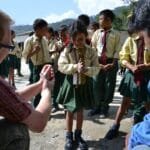
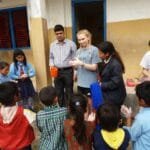
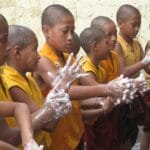
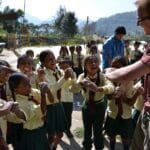

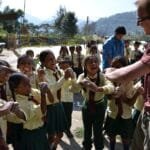
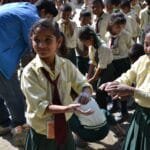
 Member of
Member of